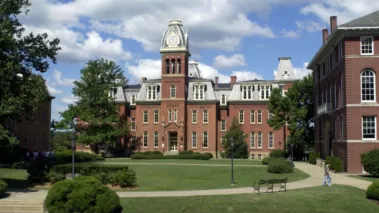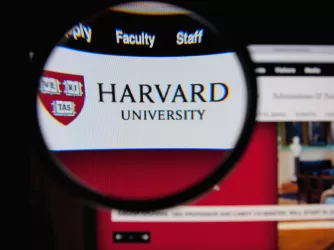Table of Contents
West Virginia Joins Other State Courts in Protecting Faculty Records

Last month, West Virginia’s highest court joined several other state courts in striking a fair balance between the disclosure of public documents and protecting free academic discourse.
On May 21, the Supreme Court of Appeals of West Virginia held that West Virginia University School of Medicine (WVU) was not required to release a professor’s documents, emails, and other communications related to the “planning, preparation and editing necessary to produce a final published article.” The case arose when Highland Mining Company lodged a request with WVU under the state’s Freedom of Information Act (FOIA), seeking disclosure of documents related to several articles co-authored by former WVU professor Michael Hendryx that link surface coal mining with negative health impacts in local communities. WVU refused the request.
After Highland filed suit, WVU released some documents but withheld others, including some documents related to the drafting, editing, and peer review of Professor Hendryx’s articles. The lower court ruled that these remaining documents were protected from disclosure under several statutory exceptions to the state FOIA, including an “internal memoranda” exemption and an “academic freedom” privilege the court read into the existing “personal privacy” exemption.
The state high court affirmed in part and reversed in part, but ultimately protected from disclosure the drafting, revising, and back-and-forth communications between academics that precede published work. Cognizant of its duty to strictly construe FOIA exemptions, the court declined to accept the trial court’s new “academic freedom” privilege within the “personal privacy” exemption, which generally protects the type of information kept in a “personal, medical or similar file.” However, the court agreed that most of the withheld documents were protected from disclosure under the “internal memoranda” exemption, which protects the “deliberative decision-making process” of public bodies.
The Supreme Court of Appeals rejected Highland’s argument that the “internal memoranda” exemption covered only the policy-making communications of state agencies. Rather, the court held that it applies to the decision-making of all public bodies: “The FOIA reflects our Legislature’s recognition that disclosure of public body communications reflecting deliberative processes on any subject could have a chilling effect on future communications.”
The court then considered whether the documents withheld by WVU were (1) “predecisional,” meaning they were generated before publication, and (2) deliberative. It concluded:
In the state higher education academic setting, documents generated before the final publication of a scientific research article — all documents related to the initiation, preparation and publication of the articles — are by their very nature predecisional. Second, WVU has shown that any document, regardless of its nature, that exposes the give-and-take of the scientific research consultative process, by revealing the manner in which the researchers evaluate possible alternative outcomes, is deliberative.
The court consequently held that “[t]he involuntary public disclosure of Professor Hendryx’s research documents would expose the decision-making process in such a way as to hinder candid discussion of WVU’s faculty and undermine WVU’s ability to perform its operations,” affirming the lower court’s holding on the “internal memoranda” exception.
This decision is focused and fair. As we have written about many times on The Torch, the push and pull between transparency in public entities and academic freedom is not easy to resolve. It is a necessary conversation, however, in light of the alarming trend of partisan groups on both sides of the political divide using state open records laws to demand access to faculty records in attempts to hinder or undermine controversial writings. Here, the Supreme Court of Appeals of West Virginia did not give blanket coverage to an unrestricted notion of academic freedom, but targeted the process of review, deliberation, and debate at its core for protection. In doing so, it reached a balanced decision consistent with the treatment of other public institutions in the state. Moreover, it joined courts in Virginia and Arizona in preserving, as we’ve stated before, “the right of public university faculty to think, communicate, innovate, and discuss ideas without fear of political backlash.”
Recent Articles
FIRE’s award-winning Newsdesk covers the free speech news you need to stay informed.

‘I hate freedom of opinion’ meme leads to sentencing in German court

Revoking Harvard’s tax-exempt status will threaten all nonprofits

Grandpa’s advice for the new wave of American censors
